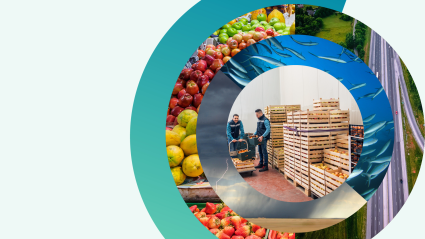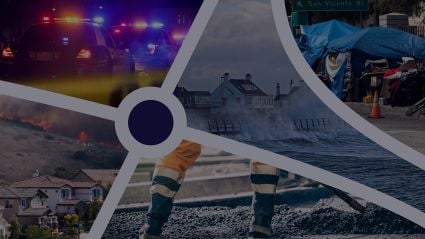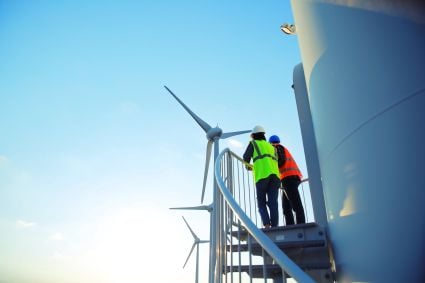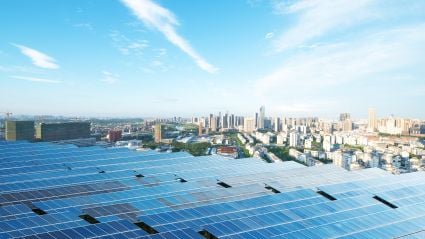SVG

Environmental Sustainability
Overview
FIL work around climate change, conservation, and environmental sustainability has increased the issuance of green bonds, as well as created recommendations for green infrastructure, renewable energy, alternative fuels, and electric vehicles. FIL addresses market failures and financing gaps in climate solutions by collaborating with partners to dismantle silos and convene stakeholders to explore and develop innovative financing strategies that bridge these gaps.
Environmental Sustainability
Related Content
-

Innovative Financing Models for Resilient Critical Mineral Supply Chains
The need for resilient and secure critical mineral supply chains is now a globally acknowledged concept. Decades of investment disparities have exposed the fragility of supply, as strong and rising global demand clashes with monopolistic...Read Report -

Priorities for Strategic Climate and Environmental Philanthropy
Climate disasters—including intensified droughts, wildfires, storms, and flooding—are on the rise globally, with cascading negative impacts on communities and ecosystems.Read Report -

Weather and Waste: Rethinking Small Business Support Following a Natural Disaster
As of November 1, 2024, one each of 24 confirmed weather-related disasters in the United States caused damage associated with losses exceeding $1 billion. The year was one of the costliest since 1980. Nationally, the annual number of...Read ReportImage
Kristen Fanarakis
Associate Director, Small Business, Entrepreneurship, and Economic GrowthKristen Fanarakis leads the small business policy, entrepreneurship, and innovation initiative within the Milken Institute’s Finance pillar. She focuses on the macroeconomic and systemic trends affecting American small businesses and startups, and the implications for the economy and innovation. -

Insights on Investments in Food Systems Transformation: Pathways to COP30
This brief synthesizes those conversations into four key themes related to the trends, challenges, and opportunities for public, private, and nonprofit capital to drive food systems transformation.Read Report IM
IM
-

Financial Innovations Lab: Integrating ESG Data to Improve Risk Management and Municipal Resilience
Sustainable debt investments and the market for ESG data continue to expand. But without effective measuring and tracking of the ESG risks specific to each community, there is a limit to that growth. What’s unmeasured can’t be managed. If...Read Report MB
MB
-

Meeting Business Goals through ESG Data Optimization and Technology in Southeast Asia
Beginning in late 2020, with the support of Google Cloud, the Milken Institute embarked on a two-part Financial Innovations Lab series, exploring the role of technology in improving the resilience and function of Southeast Asia’s financial...Read Report -

Models for Financing an Environmentally Sustainable Business Transition
There is undeniable evidence that changes to the climate impact the day-to-day lives of individuals, communities, and corporations alike. The latest report from the UN Intergovernmental Panel on Climate Change (IPCC), released in August...Read Report -

Growing the US Green Bond Market: Lab 2
As climate-related events, including wildfires, become more prevalent throughout California, investors and issuers alike are looking for new tools to protect the state from increasingly devastating environmental disasters. At the same time...Read Report -
Growing the U.S. Green Bond Market: Volume 2: Actionable Strategies and Solutions
The United States deteriorating infrastructure is woefully underprepared to address the challenge of adapting to climate change. The American Society of Civil Engineers estimates it will cost $2 trillion just to bring America’s...Read Report MB
MB



